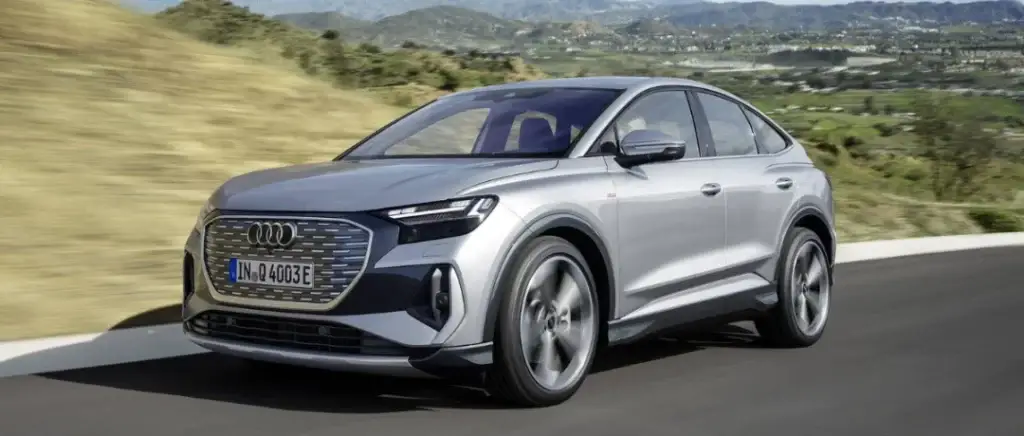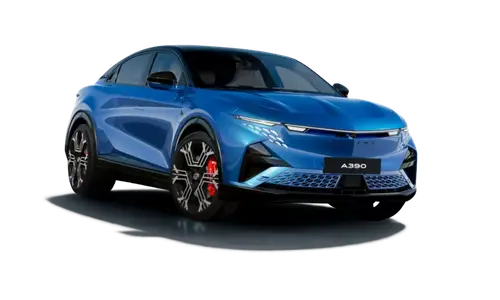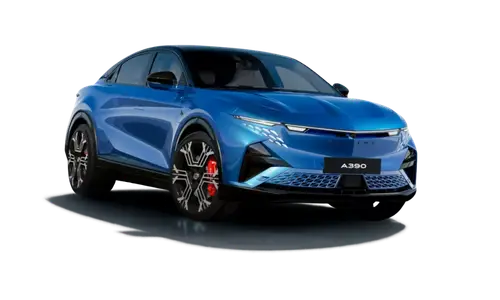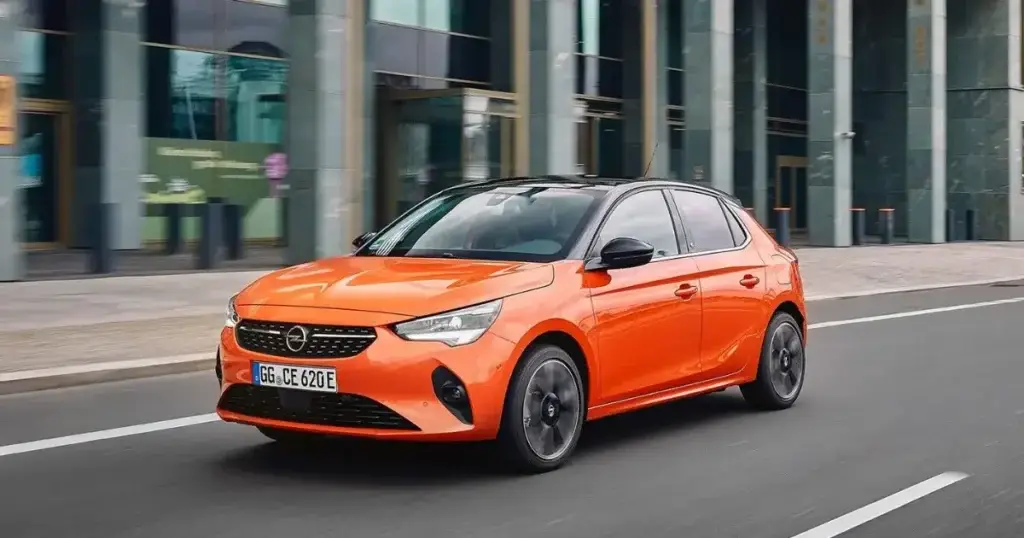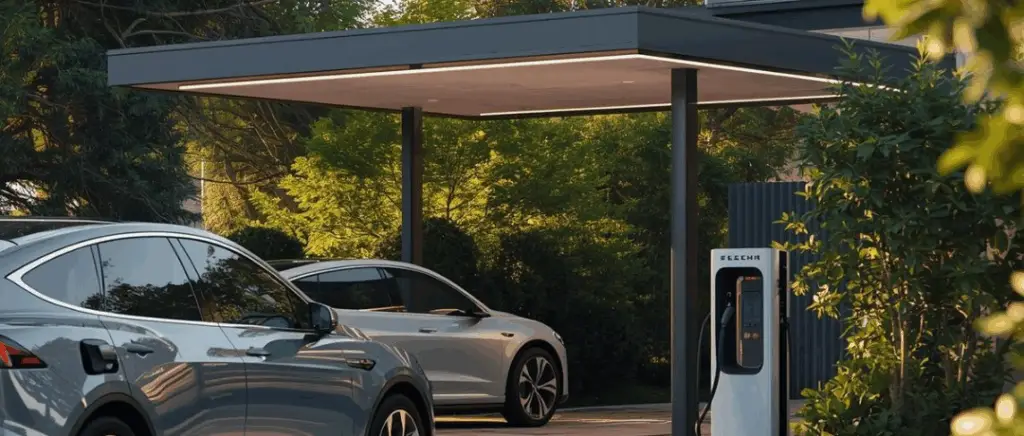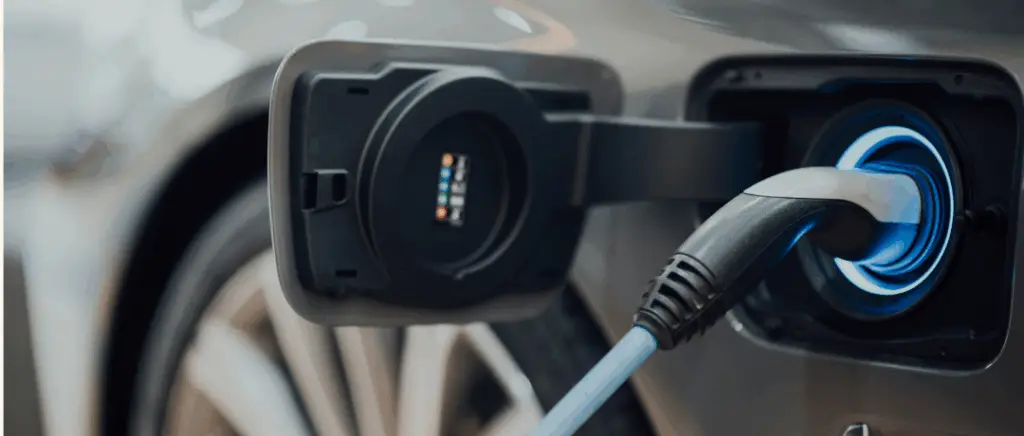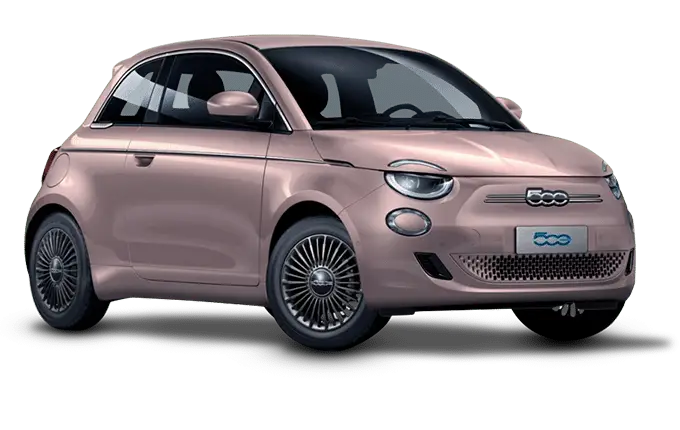
VS
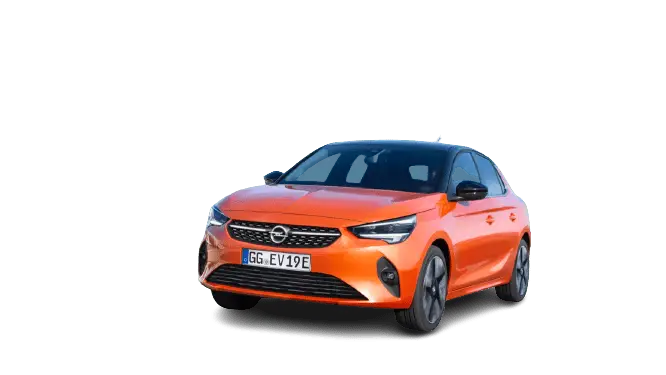
Compare the Fiat 500 vs Opel Corsa-ein our electric car comparison tool
Monday to Friday 9am - 12.30pm - 2pm - 7pm
Electric cars: How do you choose?
Buying an electric vehicle can be a special step in a motorist's life.
Particularly when you are making this transition for the first time:
What is theautonomy an electric car? How do I recharge my vehicle? What support is there for buying an electric vehicle?
So, first of all, we're going to explain the various essentials of an electric car.
Autonomy
Budget, range, recharging and maintenance are all crucial factors in making the best possible transition to an electric car.
Quiet running, a low environmental impact and low maintenance and servicing costs recharge you'll fall under the spell of the electric car.
Today, autonomy is suitable for all types of driver, even if you have to cover a lot of kilometres, several long-range models are now available on the electric market.
Good to know WLTP standard is a vehicle certification test standard that measures fuel consumption and electric range.
Read also : 2023 ranking of the 10 long-range electric cars
The price
Price is often a barrier when it comes to buying an electric vehicle, which is why the government has introduced a range of subsidies to help you save money. reduce the initial cost of an electric car.
In France, you are eligible for environmental bonus, whether you are an individual or a business, for the purchase of a new electric vehicle. What's more, depending on your situation, you may also be eligible for the conversion premium of up to €5,000. Finally, depending on your region, you can deduct up to €7,000 from your purchase by means of regional subsidies.
Read also : Support for the purchase of an electric car in 2023
How do you charge your electric car?
Charging your electric vehicle can be perceived as something complex and arduous. However, charging is one of the easiest things to get to grips with when buying an electric vehicle.
- In France's major cities, most town councils have introduced policies to encourage the use of electric cars. For example, you'll be able to recharge at charging stations in your town.
- If you live in a single-family home, you can take advantage of a number of advantages aid for installing recharging points in your home to optimise your home charging.
- If you live in a condominium, you can install a terminal in your building thanks to the "right to take".
Read also : Electric vehicle charging points in condominiums: the complete guide
Germany's best electric SUVs
Audi e-tron
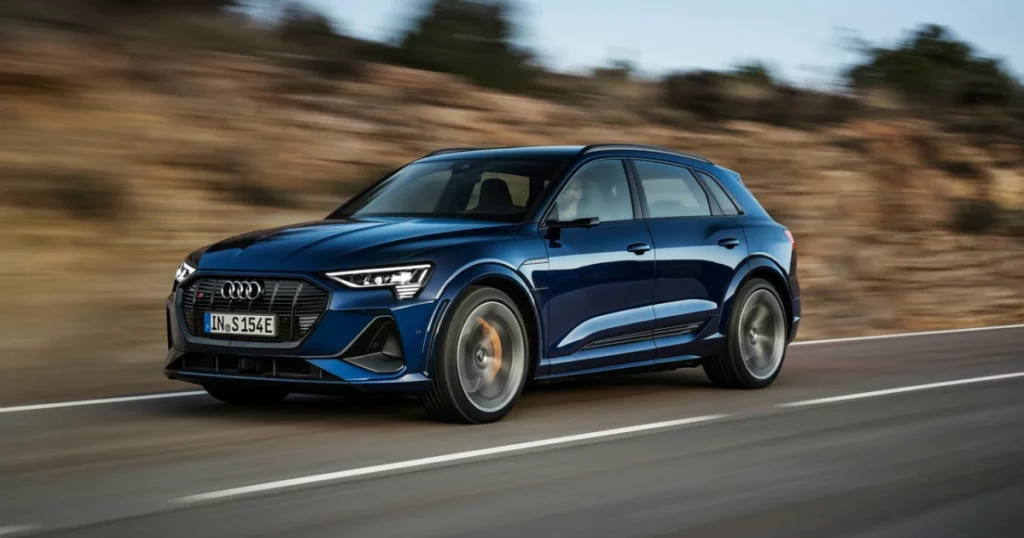
LAudi e-tron is the first Electric SUV 100% available from early 2019. It is positioned in the electric SUV range. luxuriousThe Q7 thermal model.
The Audi e-tron is available with two engines 55 Quattro and 50 Quattro. It is also available in 4 finishes allowing the price to be diversified according to requirements. The Audi e-tron finishes are e-tron, S line, Avus and Avus Extended.
In its 55 QuattroThe e-tron starts at €78,800 in its basic 'e-tron' trim.
L'Audi e-tron has a range of 436 km on the WLTP cycle and is equipped with a battery 95 kWh. What's more, it accelerates from 0 to 100 km/h in 5.7 seconds in its 55 Quattro configuration, powered by a 300 kW (408 bhp) electric motor.
In terms of recharging, the Audi e-tron is capable of recharging from 10% to 80% in 26 minutes.
- Range: 436 km (WLTP)
- Acceleration from 0 to 100 km/h: 5.7s
- Fast recharge (10 to 80%): 26 min
- Price: €78,800
Mercedes EQC
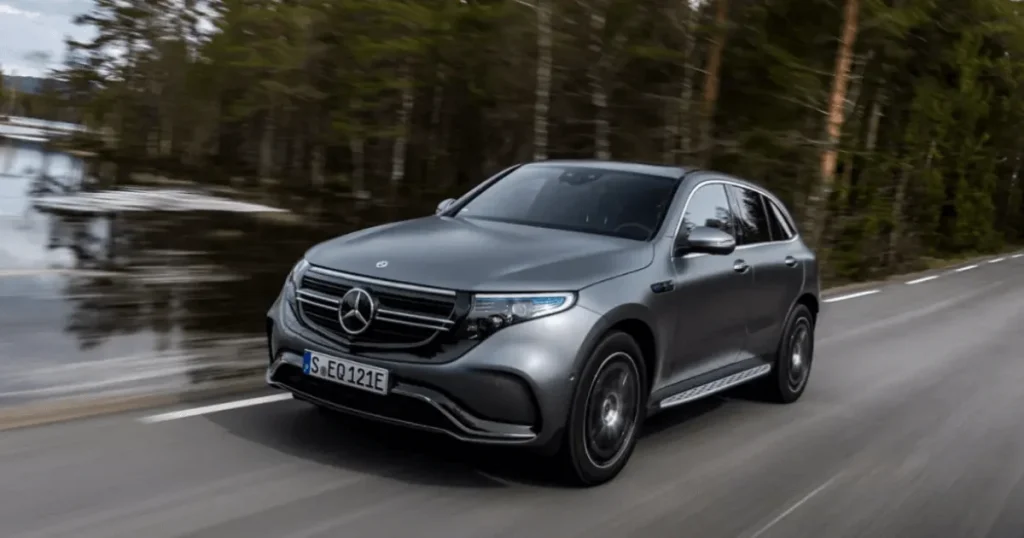
Available from €86,149, the Mercedes EQC is the first electric SUV from Mercedes as well as the EQ range dedicated to electrics.
Equipped with a 300 kW (408 bhp) engine, this SUV has nothing to envy of the performance of combustion-powered vehicles, with a 0 to 100 km/h time of 5.1 seconds.
In terms of autonomy, the Mercedes EQC has a WLTP range of 414 km thanks to its 85 kWh battery.
Inside, the EQC is equipped with a digital instrument panel, taken from the Mercedes A-Classwhich displays navigation and infotainment information.
- Range: 414 km (WLTP)
- Acceleration from 0 to 100 km/h: 5.1s
- Fast recharge (10 to 80%): 35 min
- Price: €86,149
Germany's best electric city cars
BMW i3
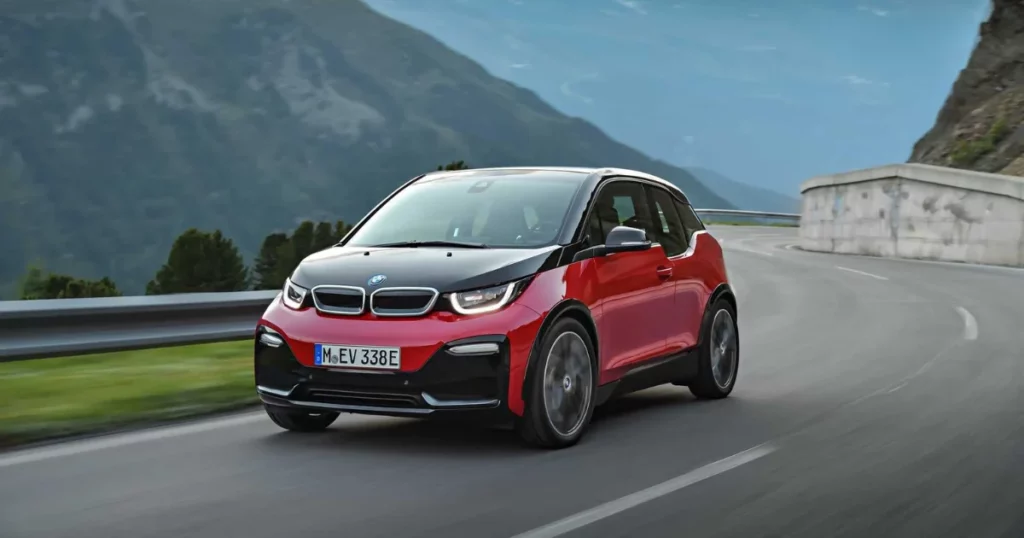
Marketed in 2013, the BMW i3 is one of the first electric cars to be launched. Recently, the BMW i3 has been given a new, sportier version, the BMW i3s and a new technology package.
Available from €39,950, the BMW i3 is a electric city car equipped with a 42 kWh battery giving it a range of 310 km in the WLTP cycle.
Engine-wise, the i3 has a 125 kW (170 bhp) electric motor, enabling it to accelerate from 0 to 100 km/h in 7.9 seconds, with a top speed limited to 150 km/h.
- Range: 310 km (WLTP)
- Acceleration from 0 to 100 km/h: 7.9s
- Fast recharge (10 to 80%): 36 min
- Price: €39,950
Opel Corsa-e
L'Opel Corsa-e is the German marque's first step towards electric power, thanks to the PSA Group's platform. L'Opel Corsa-e offers a service equivalent to electric city cars while remaining one of the most affordable city cars.
Available from €31,700, L'Opel Corsa is powered by the same engine as the Peugeot e-208. The electric motor produces 100 kW, or 136 bhp, enabling it to accelerate from 0 to 100 km/h in 8.1 seconds.
In terms of range, the electric city car offers up to 337 km in the WLTP cycle, thanks to its 50 kWh battery.
Inside, the sober design is identical to that of the internal combustion version. What's more, it differs from the internal combustion version only in its closed radiator grille, exclusive wheels and redesigned fuel filler flap.
- Range: 337 km (WLTP)
- Acceleration from 0 to 100 km/h: 8.1s
- Fast recharge (10 to 80%): 27 min
- Price: €31,700
Volkswagen e-Up!
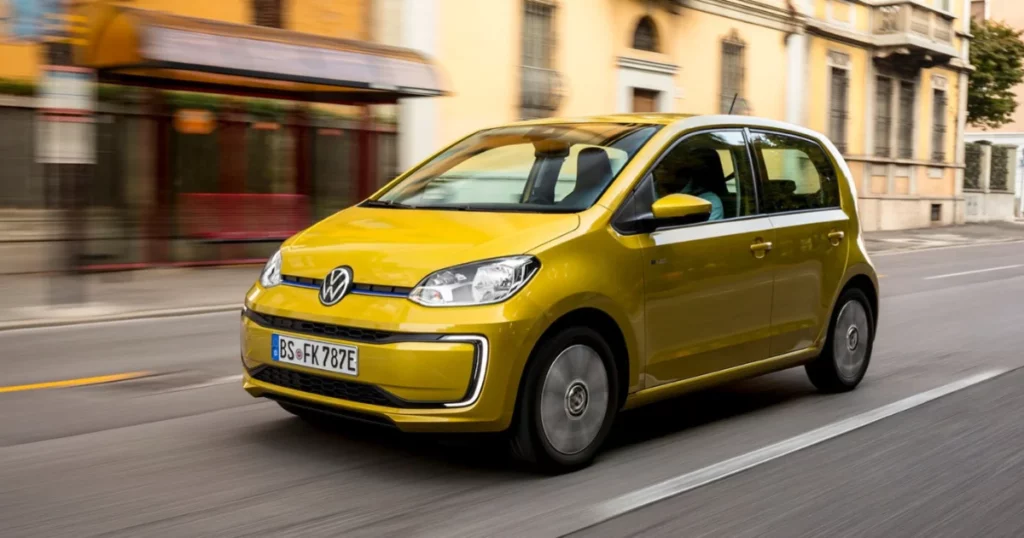
Volkswagen's first electric vehicle, the Volkswagen e-Up Gen 2 is the first electric vehicle launched by the German manufacturer since 2013.
La Volkswagen e-Up! returns in 2020 in a restyled version, with far superior performance. What's more, this 2020 version is set to be the most affordable model in the Volkswagen range.
With prices starting at €25,400, the Volkswagen e-Up! is currently available in its e-Up! 2.0 trim level.
Today, the e-Up! is equipped with a 32.3 kWh battery, giving it a range of 260 km in the WLTP cycle, compared with 141 km for the first version of the vehicle.
La Volkswagen e-Up! has an exemplary driving experience thanks to its completely silent cabin and its 61 kW (83 bhp) electric motor, and accelerates from 0 to 100 km/h in 11.9 seconds.
- Range: 260 km (WLTP)
- Acceleration from 0 to 100 km/h: 11.9s
- Fast recharge (10 to 80%): 48 min
- Price: €25,400
Germany's best electric city cars
Porsche Taycan
La Porsche Taycan is the German team's first electric car. Available from the end of 2019, the Porsche Taycan is available from €108,632 in base 4S trim. The Porsche Taycan is also available in Turbo and Turbo S trim levels, with a higher engine output and greater range.
In terms of autonomy, the Taycan has a range of up to 450 km on the WLTP cycle, thanks to its 93.4 kWh battery.
This Supercar accelerates from 0 to 100 km/h in 2.8 seconds and has two engines with a combined output of 560 kW (761 bhp). The top speed is 260 km/h, depending on the car's trim level. Taycan.
La Porsche Taycan is also capable of recharging up to 270 kWh, and the manufacturer has announced that it will be possible to recover 100 km of range in just 5 minutes.
- Range: 450 km (WLTP)
- Acceleration from 0 to 100 km/h: 2.8s
- Fast charge (10% to 80%) - 27 min
- Price: €108,632

We hope you've been able to find the right German electric car for you.
When it comes to electric vehicles, choice is no longer an issue, as there are many models with all the qualities needed to meet the needs of different types of driver.
You're free to choose the colour, finish and brand you prefer. It's up to you!
Read also : Top 9 Chinese electric cars in 2023
